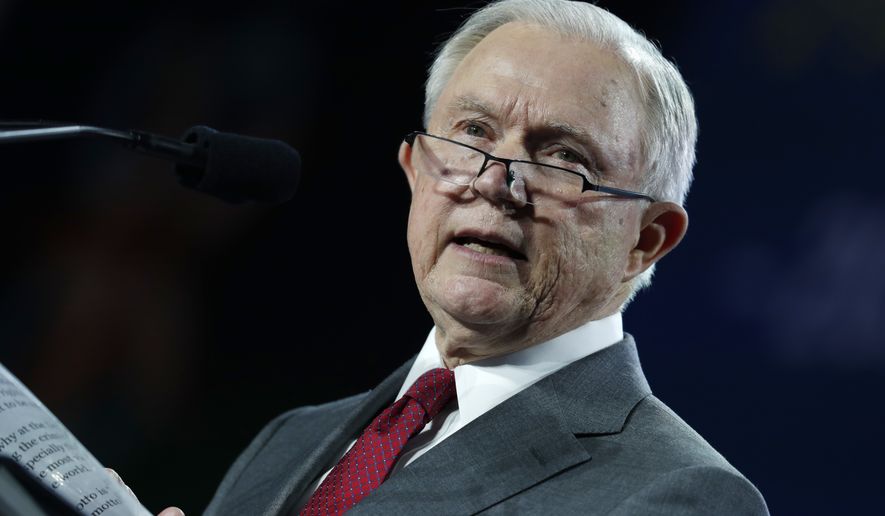The Trump administration weighed in Monday on a federal lawsuit challenging the constitutionality of policies prohibiting the expression of “bias” at the University of Michigan, arguing that the public school has been unlawfully punishing students for speech protected by the First Amendment.
In a statement of interest, the Justice Department said the Ann Arbor university has imposed a “system of arbitrary censorship of, and punishment for, constitutionality protected speech.”
“The University’s policies prohibit speech that any listener finds ’bothersome’ or ’hurtful’ — an overbroad, vague, and subjective standard that is a paradigmatic example of the chilling of free expression prohibited by the First Amendment,” the statement of interest read.
In a statement, acting Associate Attorney General Jesse Panuccio said freedom of speech and expression “are under attack” on college campuses.
“This Justice Department, under the leadership of Attorney General Jeff Sessions, is committed to promoting and defending Americans’ first freedom at public universities,” Mr. Panuccio said.
The free speech advocacy group Speech First filed a lawsuit against the University of Michigan in May.
Nicole Neily, president of Speech First, praised the Justice Department for weighing in on the case.
“We’re delighted that the U.S. Department of Justice has filed a statement of interest in our case against the University of Michigan,” Ms. Neily said in a statement. “Over the past year, DOJ has shown that they place a high priority on the First Amendment rights of students across the country, and we look forward to the court ruling on the merits of Speech First v. Schlissel.”
The lawsuit said the university’s Bias Response Team has investigated more than 150 incidents since April 2017 and has responded to reports of bias by removing flyers and posters, erasing whiteboards and investigating students and professors for their remarks.
The lawsuit claimed the Bias Response Teams’ determinations are “completely subjective,” citing the university’s declaration that the “most important indication of bias is your own feelings.”
There also have been signs that restrictions on speech were getting worse at the University of Michigan. The school announced in April that it would amend its Statement of Student Rights and Responsibilities to prohibit “bias-related misconduct.”
A spokesperson for the school said the Justice Department had “seriously misstated the University of Michigan Policy and painted a false portrait of speech on our campus.”
“Contrary to the department’s statement, the university’s Bias Response Team does not ’[have] the authority to subject students to discipline and sanction,” the spokesperson said in a statement. “Rather, it provides support to students on a voluntary basis; it does not investigate claims of bias or discipline students in any way.”
The University of Michigan also issued a clarification Monday on definitions of bullying and harassment in the Statement of Student Rights and Responsibilities.
“The revised definitions more precisely and accurately reflect the commitment to freedom of expression that has always been expressed in the statement itself,” E. Royster Harper, vice president for student life, said in a statement.
Speech First is a member organization and represents students at campuses across the country.
Plaintiffs in the lawsuit, which was filed in U.S. District Court for the Eastern District of Michigan, are several University of Michigan students.
One student quoted in the lawsuit said free speech is permitted on campus only “if your ideals align with those the University imposed on us.”
“In other words, people have their right to freedom of speech and expression, but only until their beliefs no longer align with the so-called ’correct’ beliefs, then people are not allowed to freely express those opinions,” the student is quoted as saying.
⦁ Jeff Mordock contributed to this report.
• Bradford Richardson can be reached at brichardson@washingtontimes.com.




Please read our comment policy before commenting.